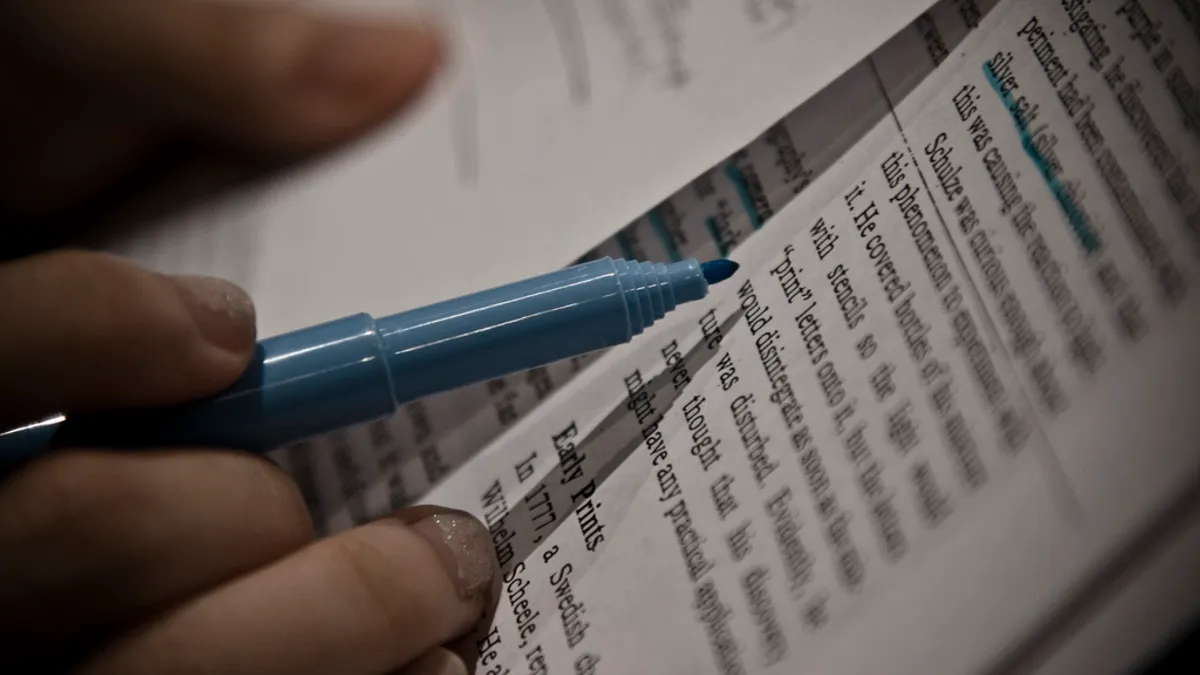Dive Brief:
- Detroit Schools Superintendent Nikolai Vitti is recommending inclusion of K-2 students in summer school programs to boost reading scores in preparation for the impact of Michigan’s new reading legislation, which will force retention of most 3rd-graders who are not reading at level when it takes effect in 2020, Chalkbeat reports.
- Vitti is also recommending expansion of summer school to middle school courses to aid in course recovery and allow more students to advance to the next grade level.
- The plan relies on funding from Title I money, grants and private funding from community partners and will be run by assistant principals as a way to provide more training for advancement and free up principals for recruitment efforts.
Dive Insight:
The move to include kindergarten in summer school programs may seem drastic, but in Detroit's school district, only about 10% of 3rd-graders passed the state ELA exam last year. Statewide in Michigan, only 44% of 3rd-grade students passed the exam. However, this not just a Michigan problem.
According to the National Conference of State Legislatures, roughly two-thirds of 4th grade students failed to score proficient in reading in 2015. The percentage of students falling below proficient were even higher for some demographic groups: 82% of African-American students, 79% of Latino students, and 78% of American Indian students in 4th grade were considered non-proficient readers in 4th grade.
Since 3rd grade reading proficiency is considered the most important predictor of high school graduation and career success, many states are now enacting legislation putting pressure on schools to produce better readers by 3rd grade. Michigan’s new reading law is similar to Ohio’s Third Grade Reading Guarantee and North Carolina’s Read to Achieve laws. In fact, 16 states plus DC now require retention of non-proficient readers at the end of 3rd grade, except under exceptional circumstances. Another eight states now allow for retention, but don’t require it. And other states have such legislation under consideration.
The new push is causing district leaders, like Vitti, to worry about the impact of the new laws. Some districts are pushing for expansion of summer school programs, which are often required under legislative reading models. Others are focusing on pushing for preschool expansion as a way to improve reading skills. All districts can benefit from expanded volunteer efforts that would allow students to have more individual instruction and practice in reading. And, as with many academic efforts, increasing parental participation in this academic area is key to success.






 Dive Awards
Dive Awards







